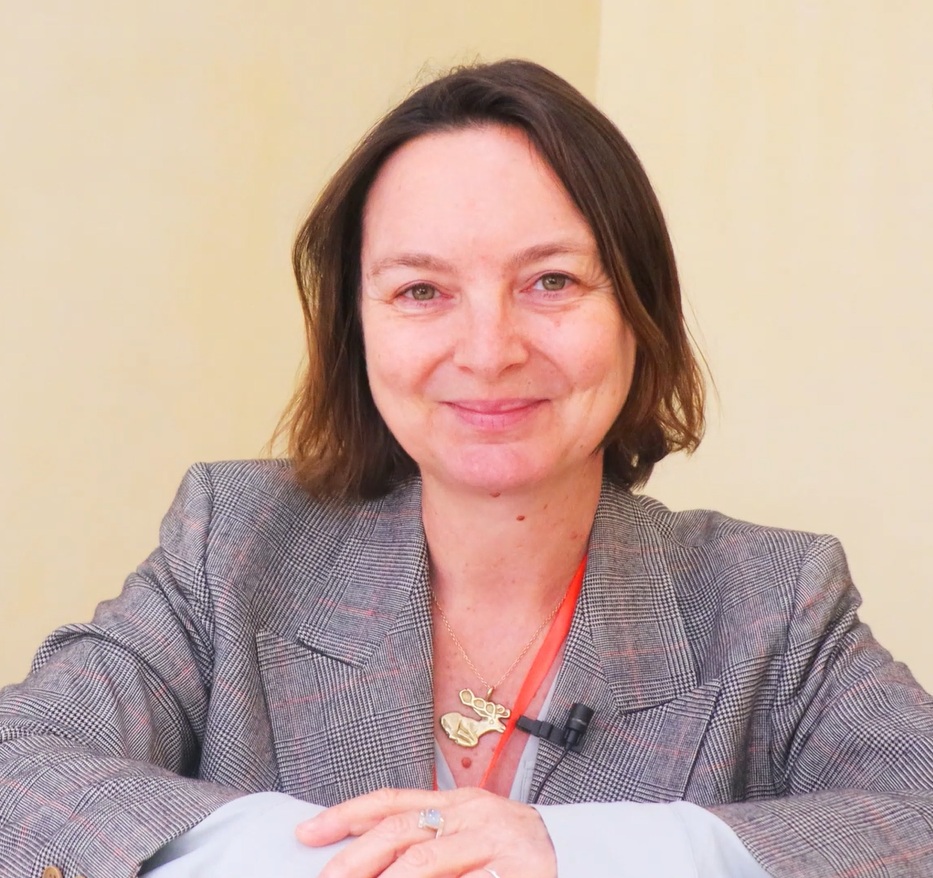Materialization of what the European Union calls for multi-actor approach concretization, because we had Ministers, former Ministers, people from public administration, research institutes, many representatives of civil society, students, and many farmers
November 2025

In this newsletter, you will discover a recap of our event, Regional Conference on Agroecology: Science and Policy, also our consortium partners’ past activities. Dive in to see how we are advancing and what is on the horizon!

Stay Updated

An Overview of Regional Conference on Agroecology: Science and Policy
Under the high patronage of the Minister of Environment of Tunisia, the Sahara and Sahel Observatory (OSS) and the Mediterranean Agronomic Institute of Montpellier (CIHEAM-IAMM) co-organized the Regional Conference on Agroecology: Science and Policy as part of the Horizon Europe NATAE Project.
Over 150 participants in person and nearly 200 online from more than 30 countries. The conference brought together an impressive delegation of current and former ministers, ambassadors, policymakers, development agencies, farmers’ organizations, civil society actors, researchers, and private sector representatives.
The conference served as a dynamic platform to share insights, strategies, and innovative approaches for accelerating the agroecological transition across North Africa and the Mediterranean, addressing the region’s pressing challenges: land degradation, water scarcity, biodiversity loss, and climate change.
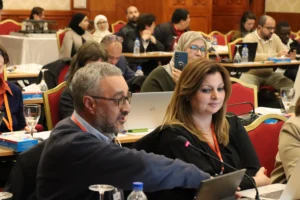
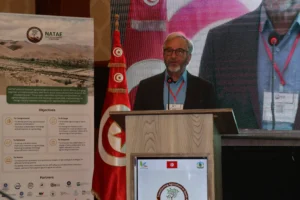
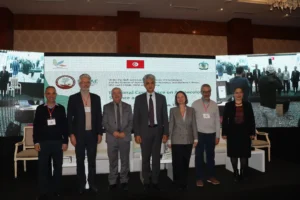
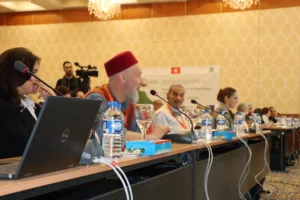
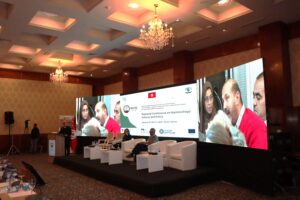
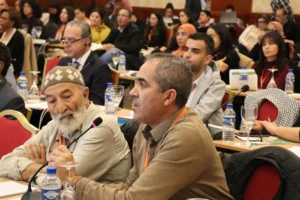
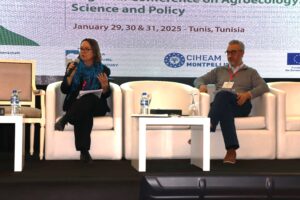
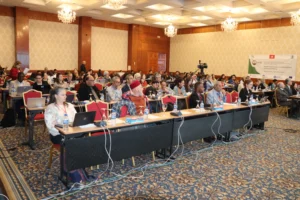
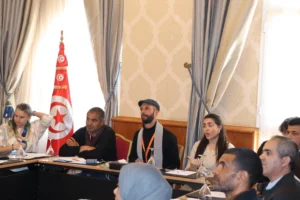
Outstanding Conference Numbers
Main Conference Themes
Accelerating the agroecological transition for resilient food systems in North Africa
- Policy Integration: Strategies for incorporating agroecology into public policies and regulatory frameworks
- Education & Training: Capacity building and knowledge transfer at all educational levels
- Financing Mechanisms: Innovative funding solutions and economic incentives for agroecological transition
- Research & Innovation: Scientific advancement through Living Labs and collaborative research networks
- Multi-stakeholder Engagement: Involving governments, civil society, private sector, and international organizations
Strategic Recommendations for Agroecological Transition:
- Recognition & Modernization: Recognize agroecology as a modern and innovative form of agriculture, not as outdated practices, emphasizing its role as a vector of public health
- Policy Integration: Make agroecology an integrated and global approach in agricultural and multi-sectoral public policies
- Financial Innovation: Involve the private sector with adapted and accessible financial products, redirecting subsidies from chemical inputs to support ecological alternatives
- Education & Awareness: Promote comprehensive awareness and education campaigns targeting consumers, producers, and educational institutions
- Market Development: Facilitate the establishment of supply chains and promote public procurement for agroecological products
- Economic Viability: Demonstrate the economic viability and productivity of agroecological farms, especially during climate crises
- Research & Networking: Integrate agroecology in research, education, and training at all levels; strengthen regional cooperation through networks like MEDAE
The conference concluded with strong commitments for continued collaboration and implementation of agroecological practices across the region. Key next steps include:
- Development of national agroecological policies and regulatory frameworks
- Establishment of regional cooperation mechanisms and knowledge-sharing platforms
- Creation of financing instruments specifically designed for agroecological transition
- Strengthening of the MEDAE network for ongoing collaboration
- Implementation of Living Labs and demonstration projects across participating countries

TESTIMONIALS
At the Regional Conference on Agroecology, experts, policymakers, and key stakeholders came together to discuss strategies for advancing sustainable agriculture in North Africa. Watch their testimonials, highlight major challenges and emphasise the critical role of policy frameworks, education, and funding in driving the region’s agroecological transition.
A very good forum bringing together all the experts in diferent fields public officials, civil society, private sector students, researchers. Agroecology is a very relevant matter in today’s world as the whole world is focusing on climate change.
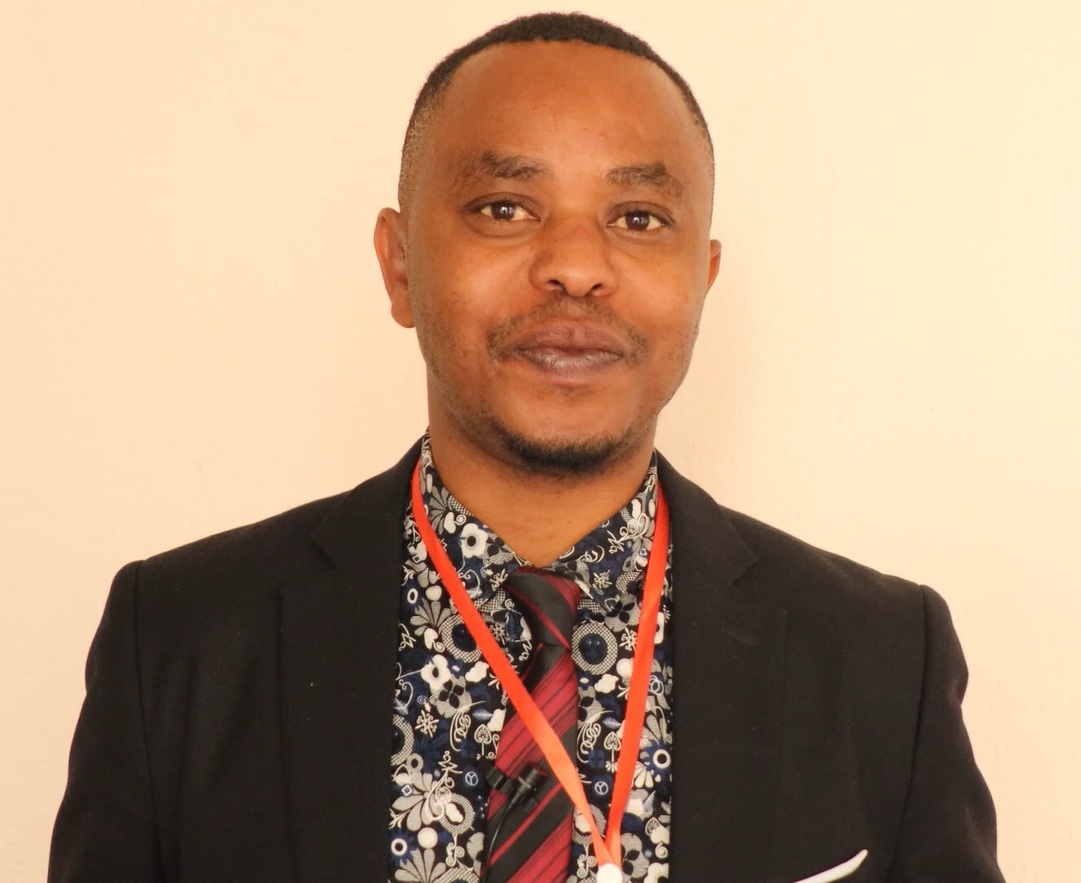
Important conference, it is how to draw important lessons to promote our policies, our strategies and our action plans in terms of agroecology and to ensure that our green corridor programme is consistent with the best practices at the national and international level.
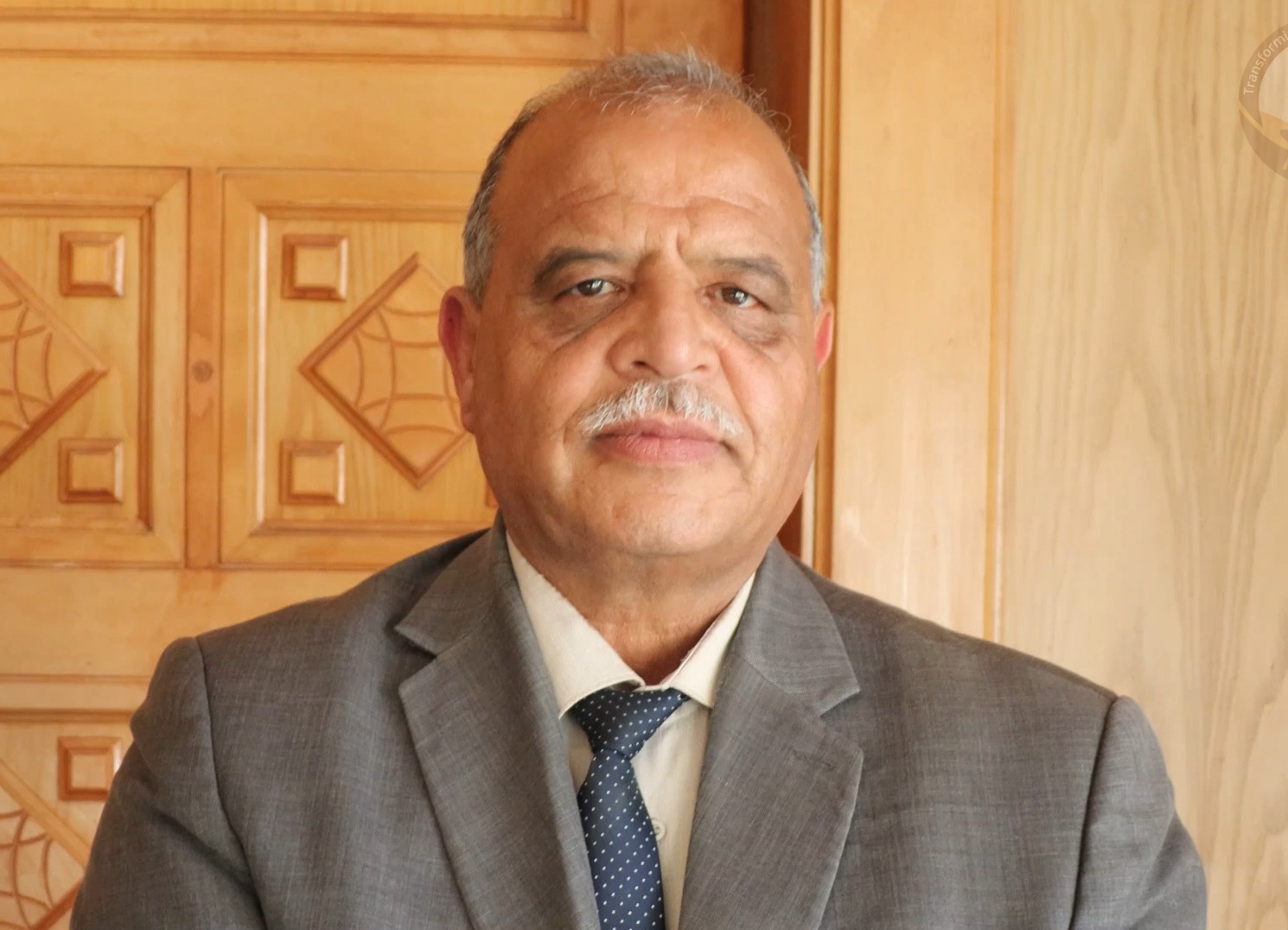
At the end of the first 2 days of this workshop, it is very clear that the world in general and in particular we the African countries of the North that have arid areas, we have every interest in developing, in making the agroecological transition because the survival of our lands depends on it.
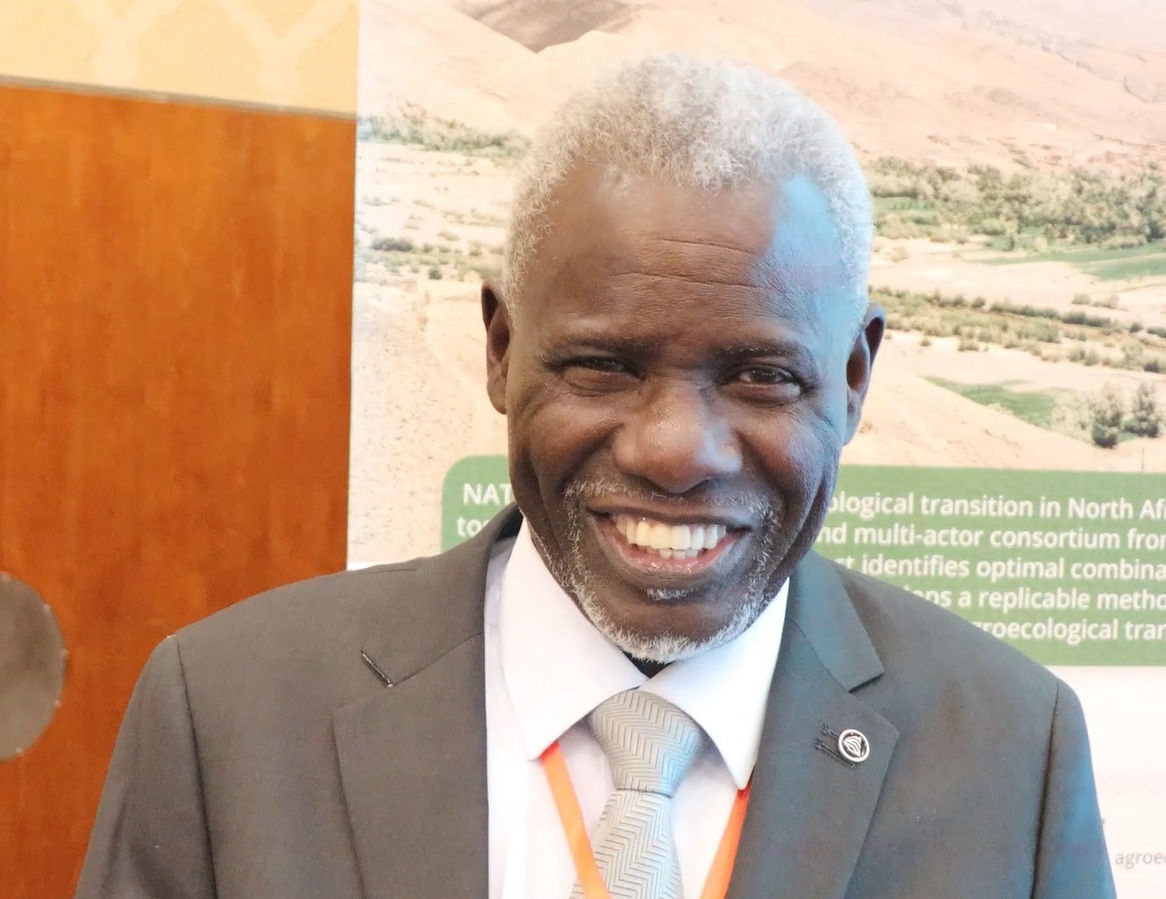
If a geopolitical event disrupted imports, the situation would be even more critical. Agroecology is really the solution in the long term for a smooth transition, and in the short term if the environment suddenly becomes much more difficult.
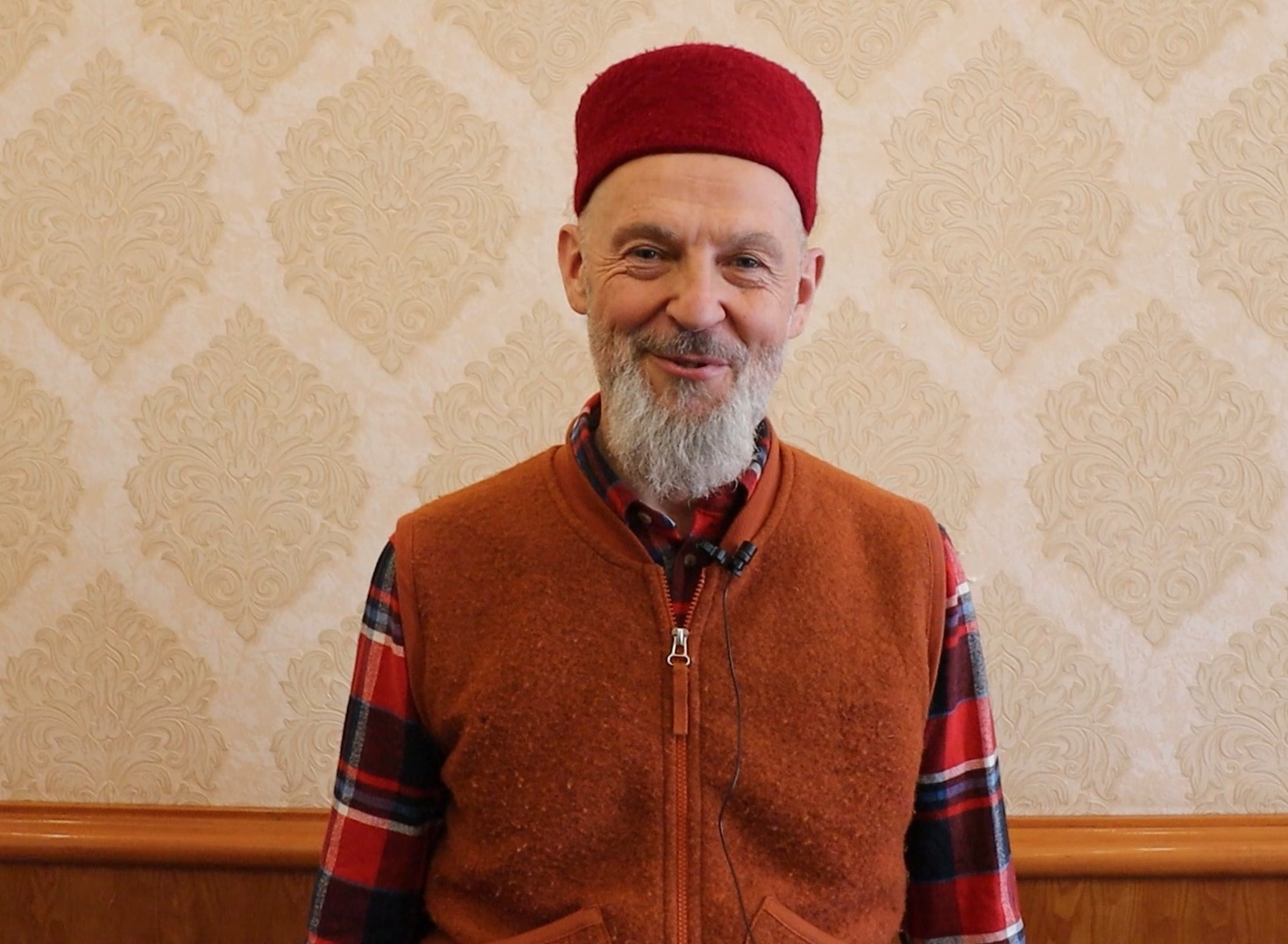
With our Tunisian colleagues, we will try to work together to propose a sufficiently rich program meeting all the criteria and parameters of agroecology. We hope to return to Algeria after this meeting to revive agroecological farming, especially for large crops, focusing more on soil conservation agriculture, with God’s help.
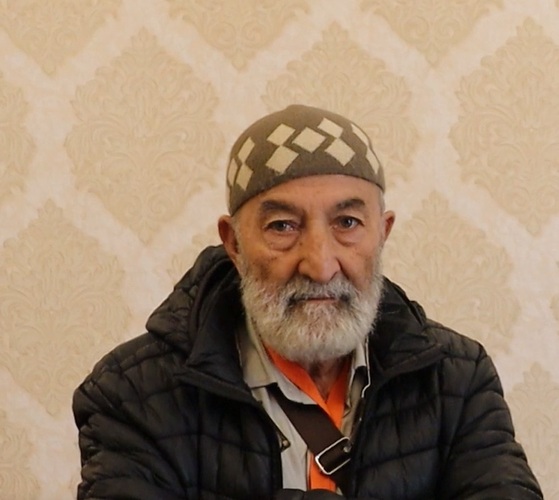
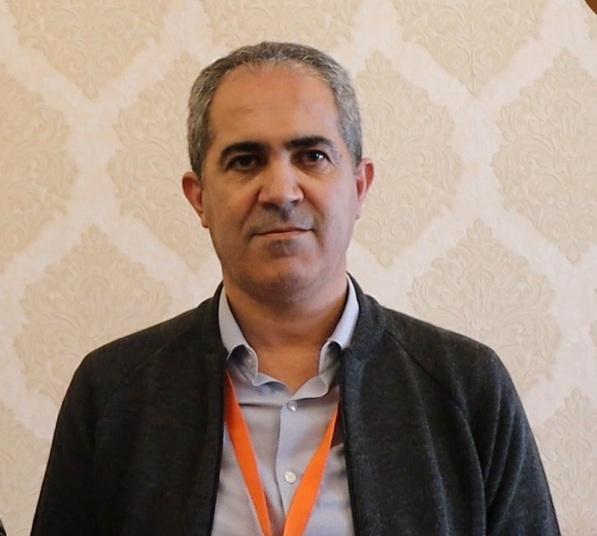

News & Events Recap
See below for the activities of NATAE consortium partners between October 2024 and March 2025
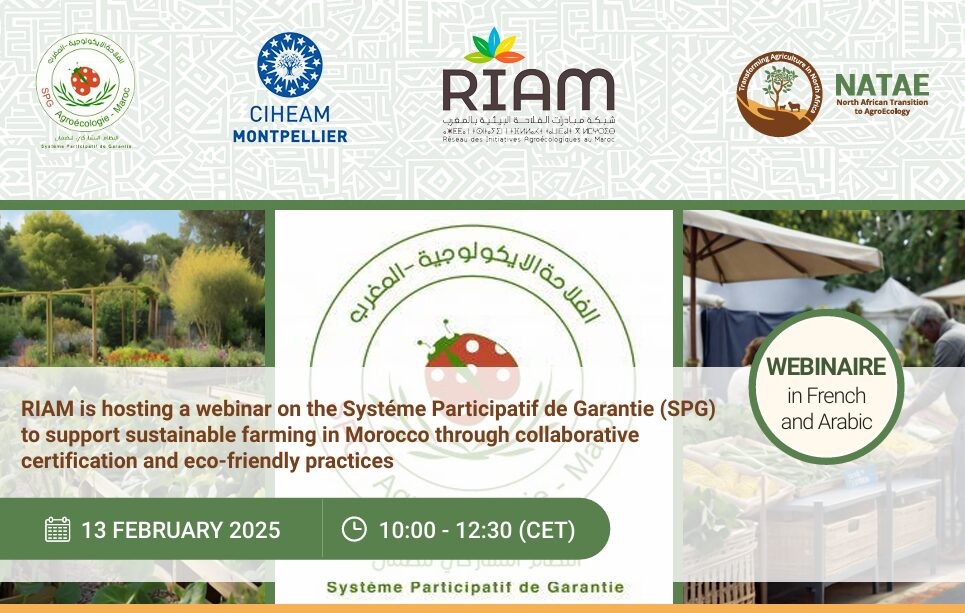
CALL FOR APPLICATIONS – International Field School
RIAM (the Network of Agroecological Initiatives in Morocco) is hosting a webinar on the Systéme Participatif de Garantie (SPG) under the NATAE project, funded by the European Union and led by CIHEAM IAMM. This initiative aims to connect agroecology and ecological transition stakeholders in Morocco.
Launch of cross-visits in Tunisia with the Siliana – El Krib living laboratory (INAT)
From January 25th to 28th, 20 farmers, researchers, and development actors from Tunisia, Morocco, Algeria, France, and the Netherlands met in Tunisia for the first cross-visit organized as part of the NATAE project. The participants included laboratory representatives from Laghouat, Tizi Ouzou and Setif (Algeria), and Boulmane (Morocco), as well as researchers from WUR and IAMM.
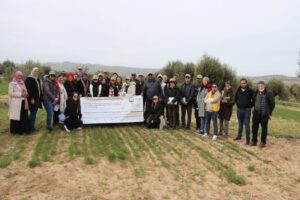
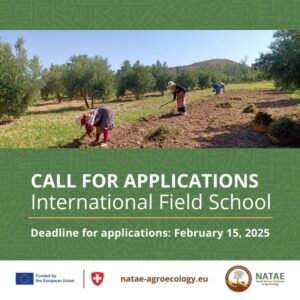
CALL FOR APPLICATIONS – International Field School
The National Agronomic Institute of Tunisia (INAT) invites agronomy, rural economics, and sociology students to a hands-on field school in Kebili, Tunisia, as part of the NATAE project. Open to final-year engineering and Master’s students from NATAE member countries, this is a unique opportunity to engage with agroecology and industry experts. (https://www.iamm.ciheam.org/fr/project/natae/).
NATAE Field Kick-Off Day at El Krib Living Lab Marks a Milestone for Agroecology in Tunisia
The Living Lab of El Krib in the Siliana district, Tunisia, marked the start of the 2024-25 cropping season with a Field Kick-Off Day on October 24, 2024 under the NATAE project. Supported by the CGIAR Research Initiative on Agroecology and hosted by ICARDA in collaboration with INGC, INAT, and local stakeholders, the event brought together 54 participants, including farmers, researchers, extension agents, and NGOs with a remarkable 50% female participation.
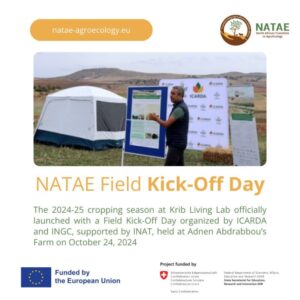
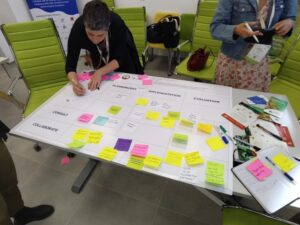
Workshop: Deployment of Living Labs Approaches in Africa for Sustainable Agriculture
Following-up on the webinar ‘Agroecology Living Labs in Africa’, during which the four projects under the Horizon Europe Farm to Fork program PrAEctiCE, CANALLS, CIRAWA and NATAE shared their perspectives on the development of Living Labs throughout Africa, an offline workshop was co-organized during the Open Living Lab Days 2024 in Timișoara, Romania. The 1.5 h event brought together in a roundtable discussion participants who were either involved in a Living Lab…
MEDAE
See below for the activity of the MEDAE network between October 2024 and March 2025.

Webinar Medae: What are the prospects for supporting the deployment of agroecology in public policies in North Africa?
MEDAE will implement a webinar that will present the results of a cross-sectional analysis of public policies in North Africa, as well as an examination of the place of agroecology in international conventions, and will look at the extent to which these policies provide a favourable or unfavourable framework for the agroecological transition.
Would your organization like to contribute to the activities of the MEDAE network?
Partners

